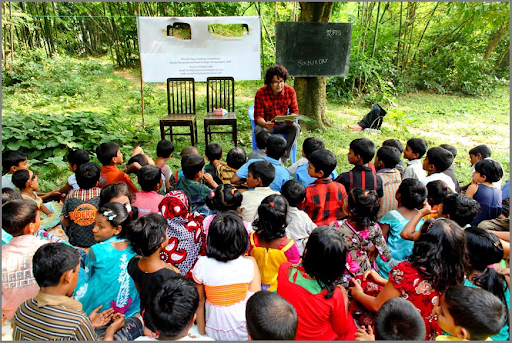 The phrase “informal education” describes learning that takes place outside of a traditional classroom. It includes a broad variety of educational opportunities, such as community service, informal mentoring, and self-directed learning. In the current fast-paced environment, those who aspire to advance personally and professionally must comprehend the meaning of informal education and how it supports lifelong learning.
The phrase “informal education” describes learning that takes place outside of a traditional classroom. It includes a broad variety of educational opportunities, such as community service, informal mentoring, and self-directed learning. In the current fast-paced environment, those who aspire to advance personally and professionally must comprehend the meaning of informal education and how it supports lifelong learning.
Recognising Non-Formal Education
Numerous activities, such as seminars, online courses, community service projects, and simply discussions with informed peers, might be considered informal education. Informal education is generally unstructured and spontaneous, in contrast to formal education, which is organised and usually results in recognised certificates. It enables people to interact with other viewpoints, study subjects of interest, and learn at their own speed.
READ ALSO: Winning the Ted and Holly Rollins Scholarship: A Quick Guide
Qualities of Non-Formal Education
- Flexible Structure: There is no set curriculum for informal schooling. Learning may be tailored to each student by giving them the freedom to select what they want to learn and when.
- Real-World Application: This kind of education raises the relevance of the learning process by emphasising information and abilities that are applicable to real-world circumstances.
- Collaborative Learning: Social connection and teamwork are fostered via informal education. In the course of learning, students frequently collaborate, exchange experiences, and offer assistance to one another.
- Diversity of Learning Sources: Books, websites, workshops, community service initiatives, and interpersonal contacts are just a few of the places where informal education can be obtained.
The Value of Non-Formal Learning
A vital part of lifelong learning and personal growth is informal education. The following justifies its necessity:
- Accessibility: Compared to formal education, informal education is frequently more accessible. No obstacles to learning exist, such as strict timetables, tuition costs, or admittance criteria.
- Promotes Self-Directed Learning: This style of instruction encourages self-reliance, empowering people to take command of their education and delve into subjects that pique their curiosity.
- Encourages Lifelong Learning: By providing ongoing chances for personal development and skill enhancement throughout life, informal education encourages the concept of lifelong learning.
What Are Non-Formal Education’s Objectives?
While informal and non-formal education are comparable, non-formal education is more planned and structured. The following are some of the main goals of non-formal education:
- Developing students’ practical skills so they may use them in the job or on community initiatives is one of the main goals of skill development.
- Social Inclusion: The goal of non-formal education is to foster social inclusion by giving underprivileged people access to educational opportunities that will allow them to participate actively in society.
- Personal Development: It promotes personal development by assisting people in gaining self-assurance, critical thinking abilities, and a feeling of self.
- Civic Engagement: Emphasising civic engagement and participation, non-formal education helps students develop into responsible, engaged citizens.
- Adaptability: By encouraging lifelong learning habits, non-formal education equips people to adjust to new difficulties in a world that is changing quickly.
Conclusion,
Knowledge of informal education and how it affects lifelong learning is essential for both professional and personal growth. People may increase their knowledge, gain new skills, and cultivate a lifelong love of learning by participating in informal learning events. Informal education is a vital part of contemporary education since it not only enriches the entire learning ecology but also complements official education. A more rewarding and richer life might result from embracing informal education.